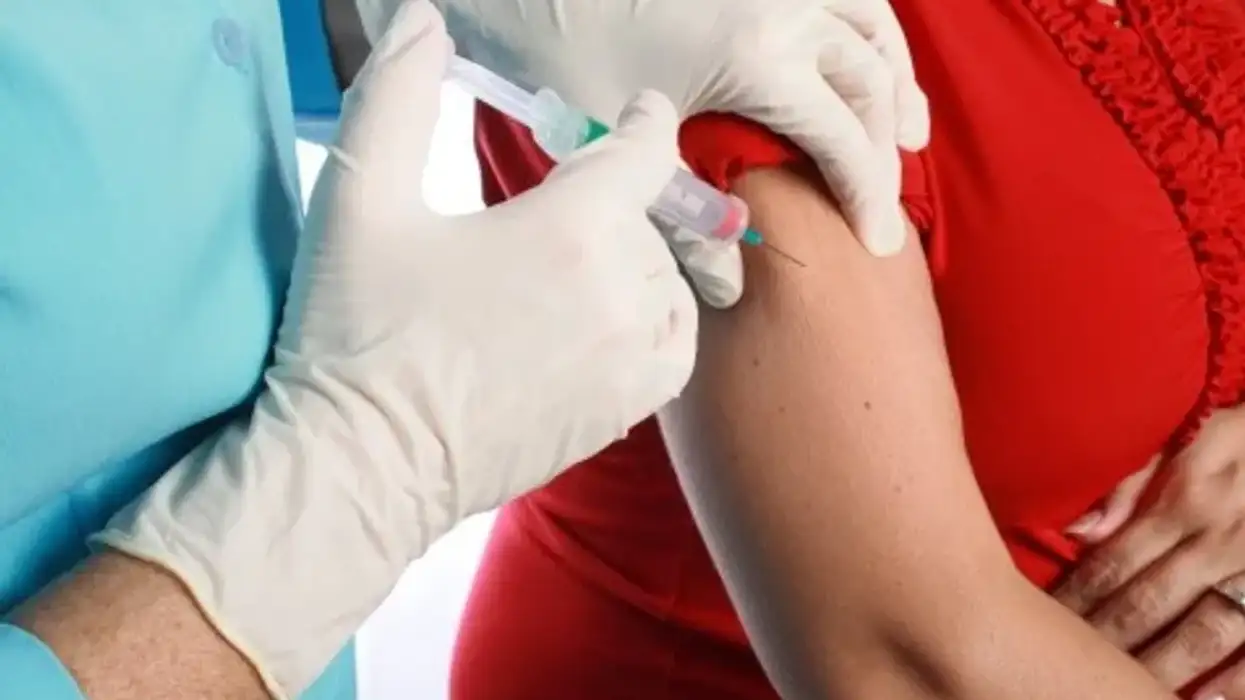In an exclusive and wide-ranging interview, GSK Consumer Healthcare’s General Manager Jonathan Workman talks about the impact of lockdown, the importance of self-care, and why people need to ‘think pharmacist first’. He spoke with Priyankur Mandav…
GlaxoSmithKline (GSK) Consumer Healthcare’s area general manager for Great Britain and Ireland, Jonathan Workman, says his unit is prepared for the double whammy of a second wave of Covid-19 and a potential no-deal Brexit.
“We are planning as if it would be a no-deal exit from the UK. We are looking at increasing our inventory levels – working with our retail partners and wholesalers to ensure that we don’t have some of the consequences of another big spike of the virus. We’re ready.”
He says the company has been doing everything it can “to make sure that the right product is in the country, ready to be delivered to consumers” via community pharmacies and other retail outlets. But he thinks now that the cold and flu season has just started, pharmacies should stock up on products that would be selling significantly over the next few months, if they haven’t already.
Science of shopping
Asked if he gets the time to visit a pharmacy, Workman replied: “Never too busy to be going out to see where our products are available to be sold.“Personally I have done a little bit less during the lockdown than I used to, but certainly I have always encouraged my team to spend a lot of time in stores, listening to pharmacists and pharmacy assistants as to what it is that’s working or not working with our products and what they’re hearing from their shoppers which can give us those valuable insights.”
He said GSK’s Brentford head office in London houses what the company calls its ‘Shopper Science Labs’ which collect insights about how shoppers behave. Designed to look like a real pharmacy, these labs allow the company to track consumer behaviour in real time.
Real consumers are invited into the lab to do “shopper missions,” Workman explains. The company uses state-of-the-art technology to analyse their behaviour and ask them about the reasons behind their decisions. All the data and insights collected in these labs help the company better understand consumer needs to create new products, promotions and packaging.
“I think you get as much of that from walking into a community pharmacy,” Workman said, before going on about how impressed he has been with pharmacists and their teams throughout the coronavirus crisis.
‘In awe of pharmacy’
“I am constantly in awe of how community pharmacists have acted during the pandemic,” he said, praising pharmacy teams for showing exceptional courage and resilience as frontline healthcare professionals, especially when the GP surgeries stopped or minimised their face-toface appointments.“I really hope that the shoppers, who go into community pharmacies more than they would have done in the past, see the benefits of having community pharmacies nearby.”
New services
But Workman is a pragmatist. He thinks pharmacy will have to offer a range of new services to maintain the increased patient footfall in stores.“It’s more important than ever for community pharmacists to offer a wide breadth of services, creating staff champions around the various focus areas, such as Stop Smoking, Pain Relief and Cough Cold.”
He says GSK Consumer Healthcare is well positioned to support independent community pharmacy services, with an even broader range of brands, extensive online training modules and a dedicated sales team.
“Our Panadol manufacturing was revised and updated during the peak of the pandemic to support the demand for paracetamol in the UK. We restored shelf availability for key OTC lines after the initial “stock up” period via our wholesale partners and helped pharmacies to highlight the key OTC cough and cold symptomatic products in store.”
Support for pharmacy
During the pandemic, Workman said, the company’s wholesale promotions and discounts to independents were also maintained and executed as planned to support community pharmacies.“GSK Consumer Healthcare Pharmacy Account Managers were on hand (for pharmacies) to maintain these offers, supporting local demand for our brands.
“We saw that allergy triggers were still affecting people working from their homes, so local pharmacies looked to us for solutions which we were able to provide in the form of POS and online training via our online GSK Health Partner Portal - gskhealthpartner.com. The aim being to help pharmacists maximise efficiency as the role of self-care becomes a huge part of the ‘new normal’.”
He said the company also immediately changed its social media strategy – regularly check-in with pharmacists and pharmacy teams to understand their concerns and pinch points “so that we could better tailor content to support their needs.
“It was through this collaboration with our pharmacy partners that we were able to respond quickly and appropriately; we changed all of our branded media to support their challenges.”
Online pharmacy
The pandemic has also changed people’s purchasing habits. A recent research found that over 30 per cent of UK consumers are now purchasing healthcare products online. How does he think independent pharmacies can fend off growing competition and threats from online pharmacies?“Shoppers can’t always get advice about whether the medicine is the correct medicine for them or advice about whether they should be seeing a GP, or whether there are immediate solutions – that’s the differentiator between our tried and trusted bricks and mortar pharmacies and e-commerce sites,” he said.
Self-care
Workman is passionate about self-care and he wants to leverage the advantages of Covid-19 to encourage more and more people to ‘think pharmacy first’.
He believes following the pandemic experience, people are now keener to help relieve pressure on the healthcare system by consulting pharmacists more often or by turning to over-the-counter medicines.
“We’re embarking on a long-term selfcare movement, with the aim of sustaining a shift in the behaviours of the nation – getting people to think of their pharmacist first and helping to reduce unnecessary visits to the GP and A&E in the longer term,” he repeated something he had mentioned earlier.
Workman, who is also vice president at the PAGB, thinks this will significantly increase footfall into pharmacies and with many people now opting to support their local businesses. He feels a stronger community feel and compassion witnessed during Covid-19, particularly during the lockdown, will feed into community pharmacies and more and more people will continue to rely on their local pharmacies.
“With a number of OTC medicines no longer prescribed by GPs, pharmacists and their staff are well-positioned to offer the correct alternative minor ailment treatment. GSK Consumer Healthcare has brands that fall into this category, like Panadol, Piriton and Pirinase, Day & Night Nurse and Voltarol and Centrum. The company is also offering ‘softer skills’ training, which was trialled with Alphega pharmacists recently, to help support healthcare professionals in delivering consultations to patients during a time of uncertainty and taking into consideration how to make the most of consultations remotely.
“We’re looking to expand this as we kick off our broader self-care activations. Each year, 18 million appointments are made with GPs for self-treatable conditions, costing the NHS over £2bn.”
Joint venture
GSK Consumer Healthcare promoted Workman, who was general manager for Southern Africa, to his current role just as the company was in talks with US pharma giant Pfizer to enter a joint venture.The deal, announced in August last year, has brought together a range of consumer health brands, including GSK’s Sensodyne, Voltarol and Panadol and Pfizer’s Anadin, Robitussin and Centrum.
The company is now a global leader in over-the-counter pharmaceutical products, spanning pain relief, cold and flu symptoms, allergies, vitamins and minerals. It has a market share of 7.3 per cent, well ahead of its nearest rivals Johnson & Johnson, Bayer and Sanofi, all on around 4 per cent.
GSK had said, during the announcement, that it would separate the joint venture via a demerger with the intention of creating “a new world-leading consumer healthcare company” three years after sealing the deal.
Workman confirmed the company was well on track for a 2022 spin-off. “That’s definitely what we are still aiming to do.
“We’ve got a wonderful portfolio of brands and the business is in a really good shape. I’m really excited about the future because a wider portfolio gives us the opportunity to serve both our consumers and shoppers but also our retail partners.”
But how does the existence and the resultant influence of such a big OTC entity help independent pharmacies?
“For me, it is also how we as a larger company can use our science… I think our role has to be to try and give pharmacists what they need from a knowledge standpoint, to try and stop those 18 million appointments that go to GPs for self-treatable conditions.
“If it’s about headaches, muscular or joint pain, we can help pharmacies offer their patients a solution, a treatment solution, whether it’s by recommending an OTC medicine, or other advice, that’s where I think we can make a biggest difference.”
This feature also appears in the print edition of Pharmacy Business/Oct 2020.











